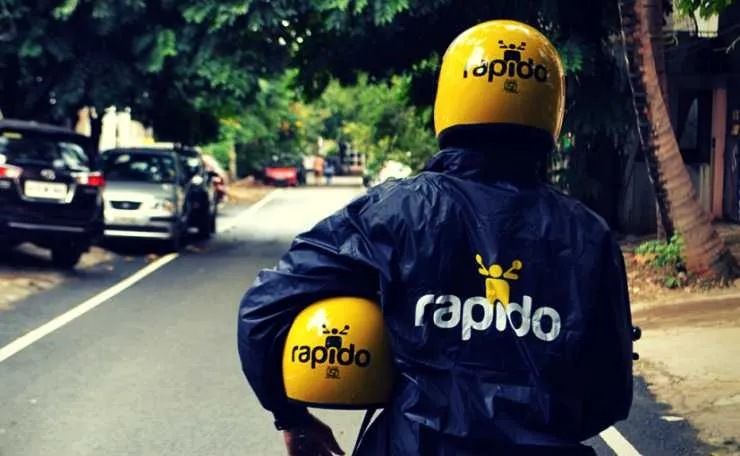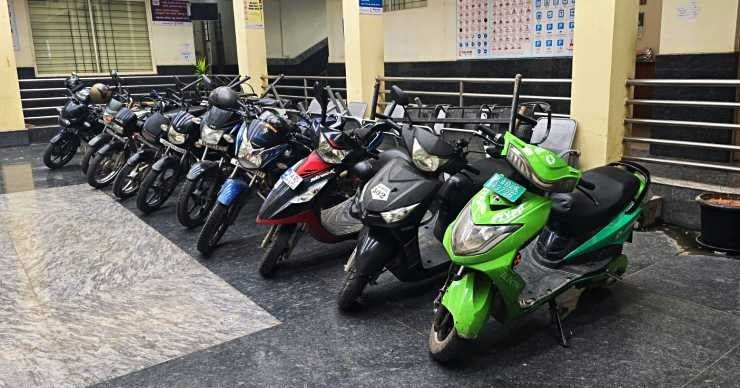Ola, Uber, and Rapido Bike Taxis Now Legal In Maharashtra



Maharashtra has taken the first formal steps toward legalising bike taxis. The State Transport Authority has granted provisional licences to Ola, Uber, and Rapido for operations in the Mumbai Metropolitan Region. The move provides long-awaited clarity for a sector that has been operating in a grey zone for years.
The approval was finalised at a meeting chaired by Transport Secretary Sanjay Sethi on August 18. The three companies—ANI Technologies (Ola), Uber India Systems, and Roppen Transportation Services (Rapido)—have been given one month to secure permanent licences. To do so, they must demonstrate compliance with the Maharashtra Bike Taxi Rules 2025.
Not every applicant qualified. Smart-Ride’s proposal was rejected for failing to meet the required standards. The selective approvals underline that while the state is opening the door to bike taxis, compliance with new norms will be strictly monitored.

Authorities have fixed fares using the Khatua Committee formula, which is already applied to autos and taxis. Minimum fares are set at ₹15 for the first 1.5 km, with ₹10.27 charged for every additional kilometre.
The difference compared to other options is stark. Traditional black-and-yellow taxis start at ₹31, while autorickshaws begin at ₹26. The pricing gap positions bike taxis as the most economical choice for short trips and last-mile travel. For cost-conscious commuters, this could quickly become the default option in congested cities.
The regulatory shift marks a dramatic turnaround. In January 2023, the state had banned private two-wheelers from being used for commercial, app-based services. Enforcement was strict, with 123 cases recorded against unauthorised operators in the Mumbai region. FIRs were filed against drivers, and the companies faced charges of running illegal services with dynamic pricing.
Despite enforcement, demand never disappeared. Congested roads, limited parking, and high fares from existing services kept riders turning to informal bike taxi options. Authorities have now moved toward regulation rather than prohibition, acknowledging that the service fills an important transport gap.
The Maharashtra Bike Taxi Rules 2025, notified on July 4, set out clear parameters. The rules apply to cities with populations of over one lakh, ensuring coverage only in areas where demand can justify organised operations.
Operators must maintain call centres or provide customer support through authorised portals. This addresses one of the frequent complaints about app-based cab services—lack of accountability in dispute resolution. Safety requirements and transparent fare systems are built into the framework, eliminating surge pricing and providing predictable costs for riders.
The rules also mandate a one-year review of fares. Authorities can make adjustments after examining operational data and market feedback, ensuring the system remains practical while avoiding excessive disruption.
Allowing pilot operations from September 16 gives Ola, Uber, and Rapido immediate scope to test demand and compliance within a formal structure. Permanent approvals will depend on their ability to meet service quality and regulatory requirements.
The impact goes beyond the Mumbai region. Maharashtra’s model could become a reference point for other states weighing similar frameworks. Balancing affordability, regulation, and safety will likely be at the heart of policy design in other metros facing the same urban transport challenges.
For years, industry observers argued that bike taxis had proven viability despite being illegal. The new policy validates that argument. By addressing safety, transparency, and service quality concerns while legalising operations, Maharashtra has acknowledged the legitimacy of demand.
The move signals that urban transport in India is shifting toward more diversified solutions. Traditional taxis and autorickshaws remain important, but bike taxis now have a formal place in the system. For commuters, this means cheaper and quicker options. For operators, it represents a chance to grow within a structured, legal framework rather than on the fringes.